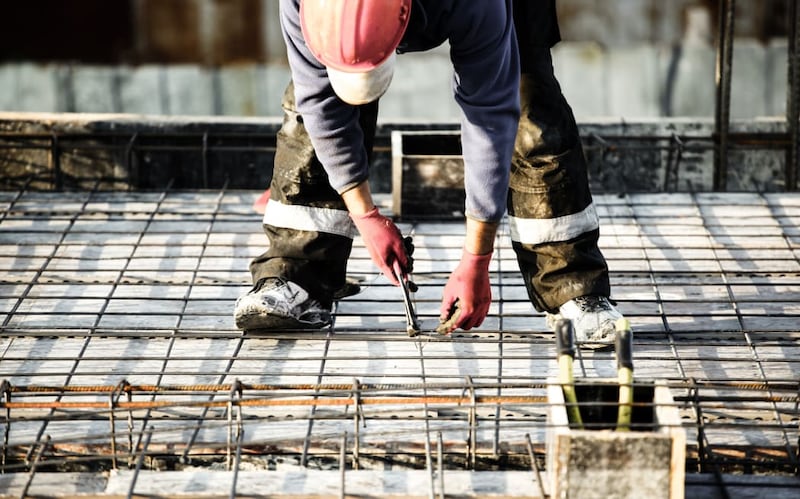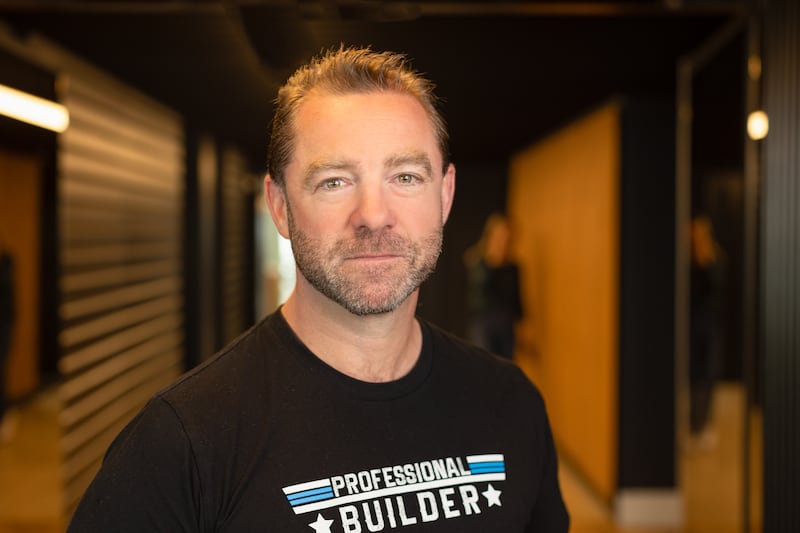Warning: This article contains references to suicide which may be distressing to some audiences.
Chris Donnelly (Ngāti Maniapoto) spent 20 years working in construction. He says that despite being a good industry to work in, it’s also tough, not just physically but mentally.
“Sometimes it’s quite hard to deal with onsite banter when it went too far, and then just the mentality that you had to suck it up and harden up and just deal with it.”
Donnelly explains that this “harden up” culture often prevents people from seeking help.
“I think maybe builders being problem-solvers decide they wanna solve the problem themselves, and they don’t necessarily need that help. And we just go about it trying to solve the problem, not realising that we’re taking ourselves further down.”

Ngā taimahatanga o te mate hinengaro
Donnelly recalls losing an apprentice to suicide in 2017, someone he considered a friend and a hard worker. The experience was “very horrible.”
In the year after, Donnelly struggled with his own mental health.
“[I was] in a really bad state myself where I just put my boots on to go out the door and I couldn’t walk out the door — [I] just became very withdrawn.”
“I had my own business and a family, young family as well. So there was a lot of pressure to be bringing in income.”
A friend reached out and asked how he was doing. “It all just came out. [And] he gave me some guidance on how to build my way out of there.”

Kei runga noa atu ngā tāne Māori i roto i ngā tatauranga whakamomori
MATES in Construction NZ is an evidence-based workplace suicide prevention model developed to reduce high suicide rates in the NZ construction industry. Their statistics show that in 2023, 80 construction workers died by suicide and 1,628 experienced self-harm incidents.
Marti Amos (Ngāpuhi), a business strategist and former Otago University lecturer who founded The Professional Builder, one of the world’s largest construction coaching services, is now calling for urgent reform to tackle the mental health crisis affecting Māori, Pasifika, and other tradespeople in Aotearoa.
A recent study by Central Queensland University shows suicide rates in construction are now 25% higher than in other industries, with Māori workers among those most at risk.
“The construction sector has the highest suicide rate, with over one death per week from suicide,” Amos says.
“I think because construction has a lot more Māori and Pasifika in it, and there’s a lack of education on what do you do if things are tough.”
He believes this crisis stems from deep systemic issues, including a lack of financial training for builders and an industry model that pushes many into burnout and debt.
“If we go back to the education system in schools, kids are taught chemistry, biology, geographyetc., but they’re not taught the fundamentals that are gonna help them in the world.”
Amos is driven by his own experience with mental health challenges.
“I had a cleaning company [that] I had to liquidate and I was lying in bed awake at night 3 o’clock in the morning thinking, how do I fix this?”
“With two small children [and] a wife - it was quite suffocating.”
He rautaki kia hoki ki te ao mārama
Amos says education is key to guiding the next generation of kaiwaihanga and helping them understand the support available, while Donnelly stresses the power of communication.
“When it comes to mental health, you don’t want people to harden up or hide away - you want them to feel safe to reach out,” Donnelly says.
For those offering support, he encourages creating a safe, non-judgemental space where people feel free to open up.
“I know it’s hard to ask for help, but there are people ready to support you. [You] don’t have to go through it alone.”
National helplines:
- Free call or text 1737 any time to speak to a trained counsellor, for any reason
- Lifeline: 0800 543 354 or text HELP to 4357
- Suicide Crisis Helpline: 0508 828 865 / 0508 TAUTOKO
- Depression Helpline: 0800 111 757 or text 4202
- Youthline: 0800 376 633 or text 234
- Healthline: 0800 611 116
If it’s an emergency and you or someone else is in danger, call 111 immediately.



